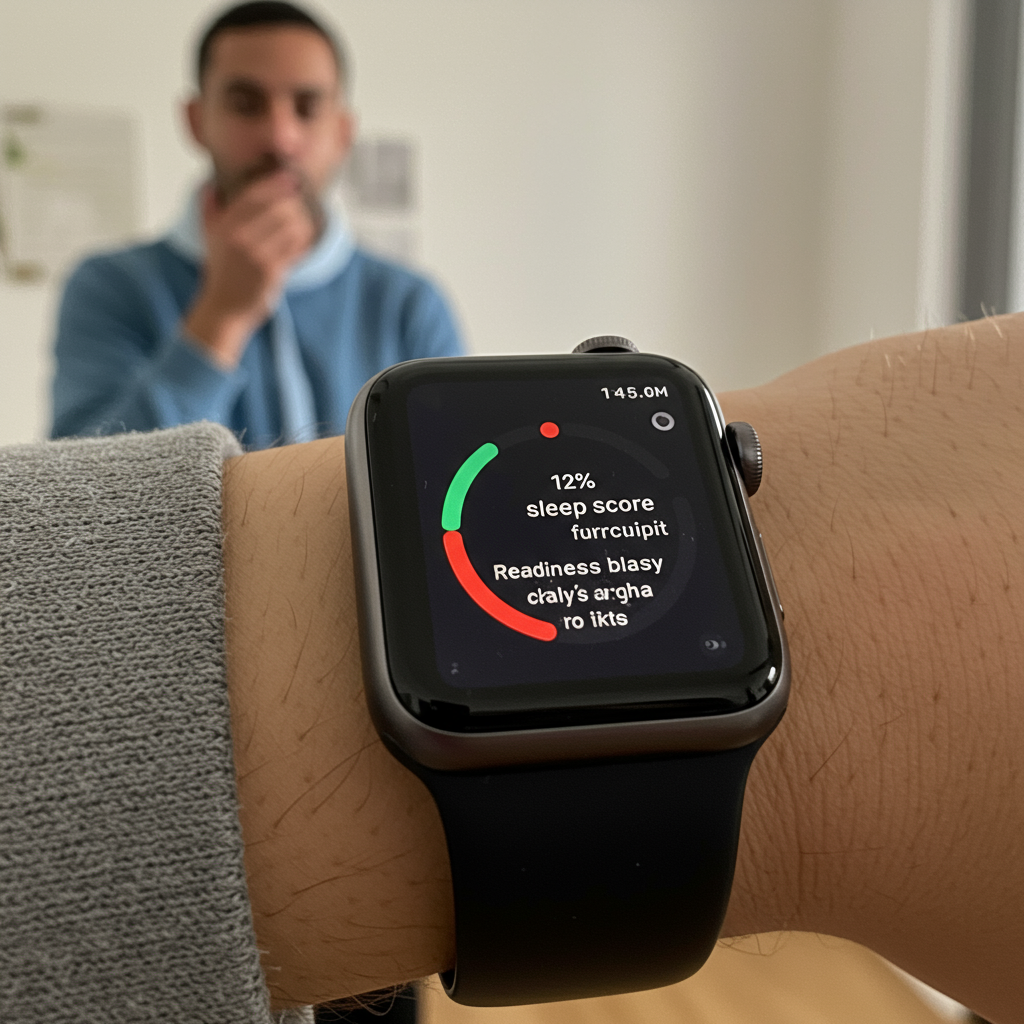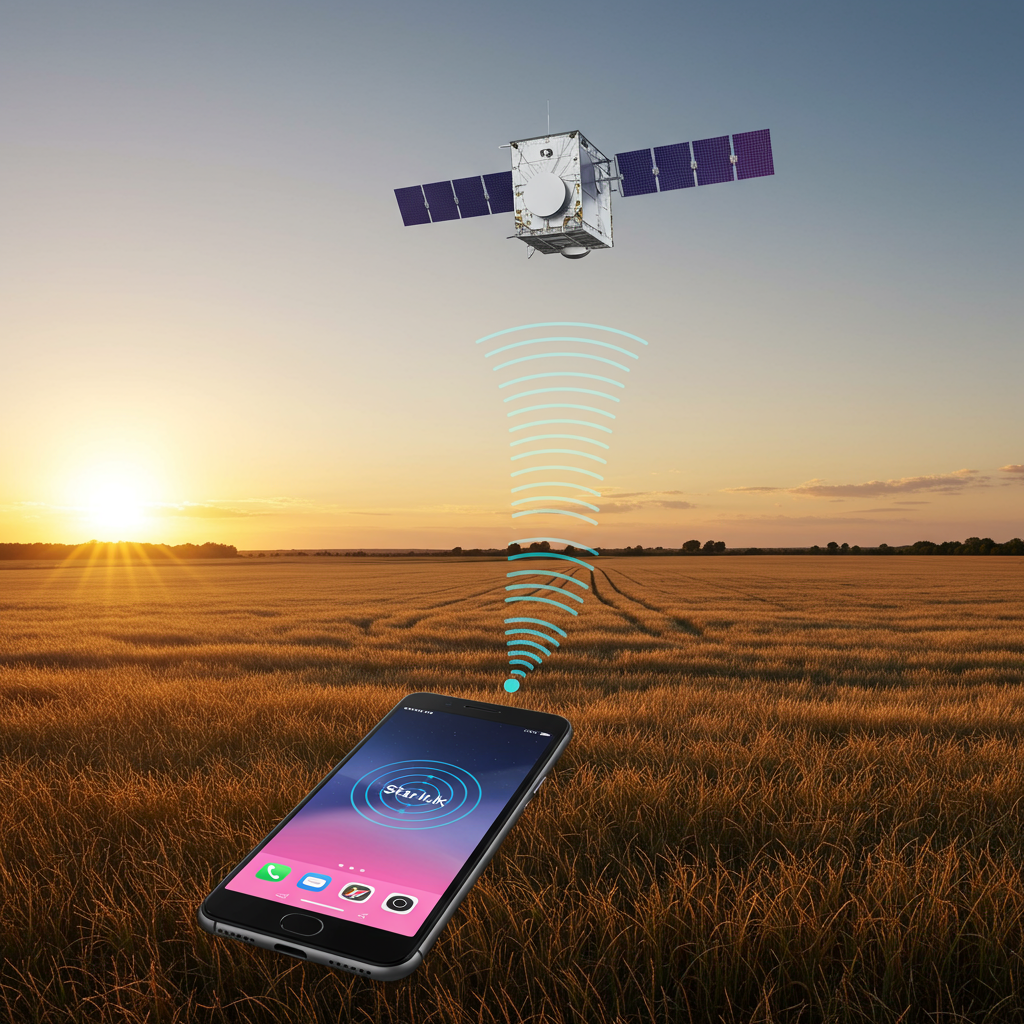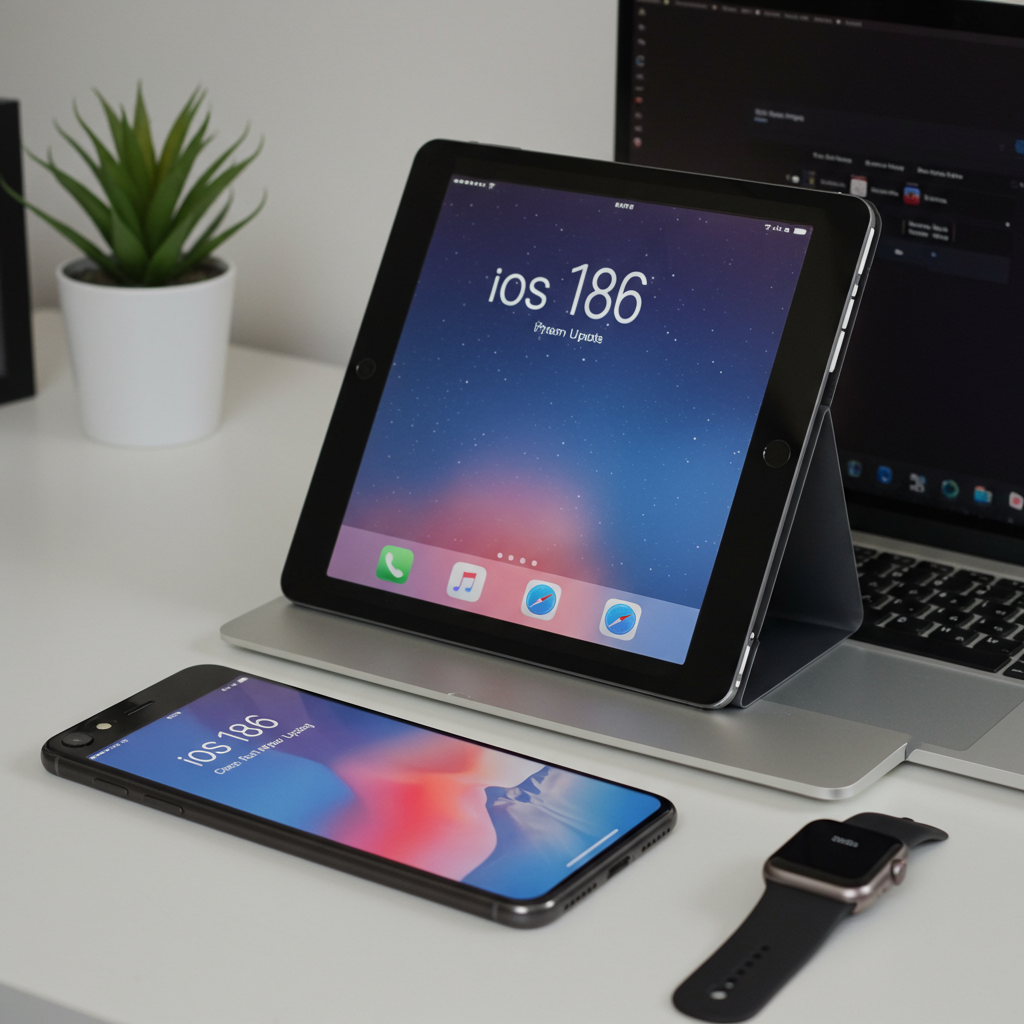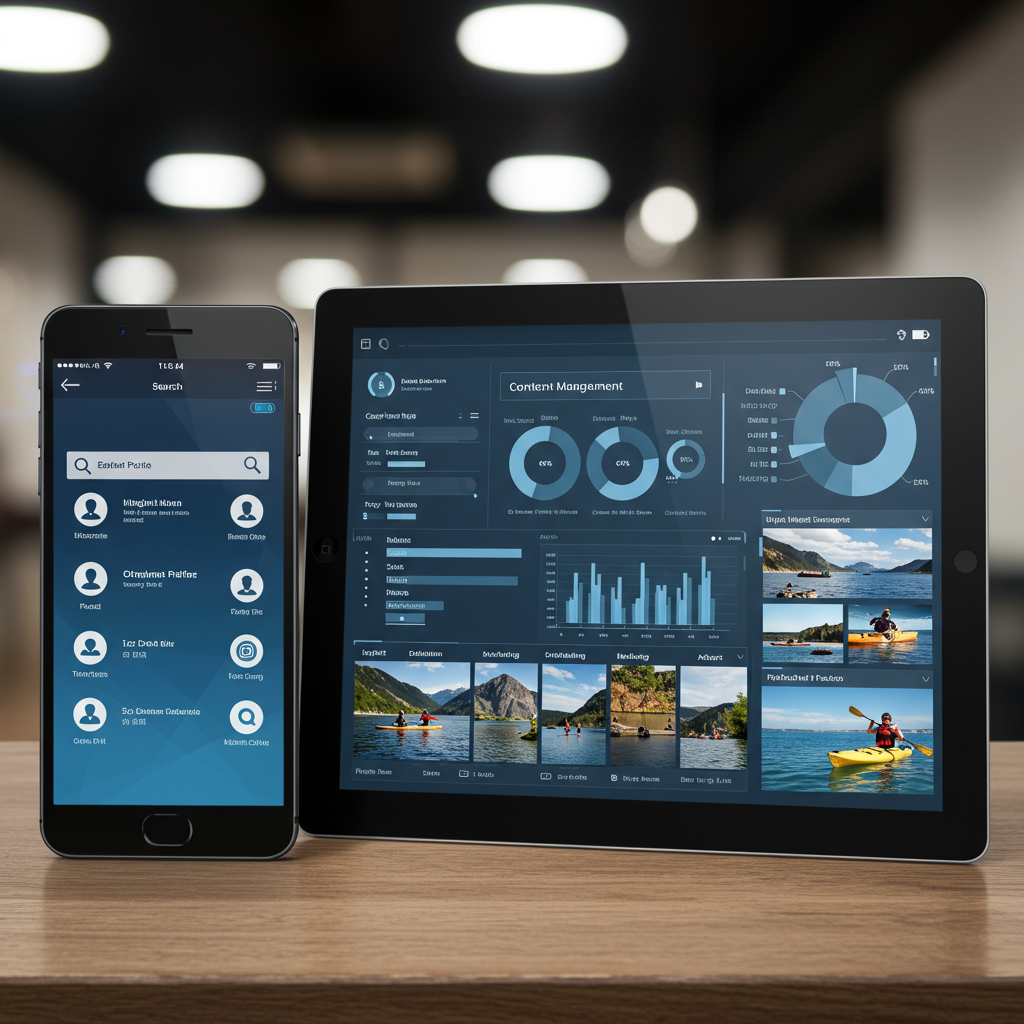The Apple Watch is poised for a significant leap in health monitoring with its upcoming “sleep score” feature. Leaks from iOS 26 code reveal a new percentage-based metric designed to assess your “readiness to tackle the day ahead.” This exciting development, internally dubbed “focus score” by Apple, also includes a more concise graphical overview of sleep stages. This advancement brings the Apple Watch into direct competition with specialized health wearables, most notably the Oura smart ring, which has long offered similar insights.
This new Apple Watch sleep score marks a strategic move. It aims to enhance existing sleep tracking by providing more actionable data. Currently, watchOS offers basic sleep metrics. However, this update promises to transform the device into a comprehensive sleep health companion. Users can anticipate automatic sleep tracking, removing the need for manual setup. This will align the Apple Watch with competitors like Fitbit and Garmin, which already offer effortless, always-on sleep monitoring.
Decoding the New Apple Watch Sleep Score
Insights suggest the forthcoming Apple Watch sleep score will mimic two core functionalities of the popular Oura Ring. First, a “focus score” will provide a single percentage. This score indicates your overall readiness. It combines various physiological markers captured overnight. The second feature is a refined visual representation of your sleep stages. This offers a quicker, more digestible view than current detailed breakdowns.
The Oura Ring’s established “Readiness Score” operates on a similar principle. It provides a daily percentage reflecting energy levels. Users can tap into this score to see contributing factors. These often include:
Resting Heart Rate: A lower, stable rate indicates better recovery.
Heart Rate Variability (HRV): Higher HRV often suggests a well-recovered nervous system.
Body Temperature: Deviations can signal illness or overtraining.
Sleep Quality: Including duration, efficiency, and consistency.
- Activity Levels: Balancing rest with exertion.
- 9to5mac.com
- www.ainvest.com
- startupnews.fyi
- www.wareable.com
- www.techradar.com
Apple’s “focus score” is expected to consider comparable metrics. While Apple may not reveal the exact calculation method, the user benefit remains clear: a quick, objective assessment of your daily capacity.
Visualizing Sleep Stages
Beyond readiness, the Apple Watch sleep score will also condense sleep stage data. Currently, Apple provides detailed sleep stage breakdowns. However, the new feature promises a more summary-oriented graphic. The Oura Ring, for example, offers both a simple overview and an option to delve into detailed graphs of REM, deep, light, and awake times. This condensed view helps users quickly grasp their sleep efficiency. It highlights key periods of restorative sleep at a glance.
The Real-World Impact: Personal Insights from Sleep Data
The utility of these advanced sleep metrics extends far beyond mere numbers. Personal accounts highlight their profound impact on well-being. An individual user shared their experience with the Oura Readiness score. They were “amazed at how well the Oura readiness score matches how I subjectively feel.” This subjective-objective alignment is crucial. It builds trust in the data.
Tracking this score over time reveals powerful insights. It helps users identify variables influencing their sleep quality. The Oura app uses AI to analyze patterns. It proactively recommends adjustments. For instance, the app identified that the user achieved optimal sleep quality by going to bed between 11 PM and midnight. This personalized advice empowers users to optimize their routines effectively.
Perhaps the most compelling benefit is its psychological impact on managing sleep disturbances. The user experienced a bout of insomnia. Subjectively, they felt awake for hours. However, the Oura data presented a different reality. Actual wakefulness was typically limited to about one hour maximum. Healthy sleep cycles often preceded and followed these brief awakenings. This objective data demystified sleep. It revealed that brief nocturnal awakenings are common and often forgotten.
The data also showed that simply lying still in the dark was more effective for falling back asleep than getting up for a while. Critically, this objective information broke the “insomnia anxiety” cycle. Worrying about not sleeping often makes it harder to sleep. The data provided reassurance. It allowed the user to calmly wait to fall asleep again. This objective understanding effectively helped resolve the insomnia. This personal testament underscores the genuine value an advanced Apple Watch sleep score could offer.
Apple’s Strategic Play in Wearable Health
The introduction of a comprehensive sleep score is not just a feature upgrade for Apple. It’s a strategic maneuver in the highly competitive wearable technology market. Competitors like Garmin and Google’s Pixel Watch already boast robust sleep scoring. Apple’s move aims to narrow this “feature gap.” This could significantly boost Apple’s market share in health-focused wearables.
The Apple Watch’s existing sensor suite, including the accelerometer and heart rate monitor, will power these new scores. The integration of machine learning promises personalized recommendations. These tailored insights could be particularly beneficial for users struggling with insomnia or other sleep-related issues. This positions the Apple Watch as a more comprehensive health companion. It solidifies Apple’s health ecosystem.
Bridging the Gap with Third-Party Innovation
Interestingly, the Apple Watch community has long leveraged third-party apps for advanced health metrics. Applications like Athlytic and Training Today aim to replicate the “readiness” and “recovery” features found in devices like Whoop. These apps utilize the Apple Watch’s Heart Rate Variability (HRV) data to provide readiness scores. Gentler Streak, another popular app, also uses HRV and sleep data. It guides users towards personalized activity levels. Dedicated sleep apps like Rise and AutoSleep already offer more detailed sleep tracking than Apple’s native offering. AutoSleep, for example, provides significant value for a one-time fee.
Apple’s new native sleep score, while not entirely innovative in concept, leverages its unparalleled integration. Its seamless connection with existing hardware and software could make its version exceptionally accessible and useful. This could drive upgrades and enhance the overall user experience.
Benefits Beyond the Individual
The potential impact of the new Apple Watch sleep score extends beyond individual users. It holds promise for enterprise clients and corporate wellness programs. By aggregating sleep data with other metrics like activity and stress, the Apple Watch could offer “holistic wellness scores.” This integration could encourage wider adoption. Especially if bundled with AI enhancements in iOS 26, it could lead to substantial upgrades across the user base.
While the exact calculation methods for Apple’s “focus score” and its precise replication of Oura’s factors remain undisclosed, the demonstrated benefits from similar smart ring technology point to a valuable addition. The objective data provided by such features can empower users. It can help them understand their bodies better. This fosters healthier habits and reduces anxiety around sleep.
Frequently Asked Questions
How will the Apple Watch sleep score improve sleep tracking?
The new Apple Watch sleep score, expected with watchOS 26, will significantly enhance sleep tracking by providing a percentage-based “focus score” for daily readiness and a condensed graphical representation of sleep stages. Unlike previous manual tracking, this feature is anticipated to track sleep automatically. It will leverage existing sensors and machine learning to offer personalized recommendations. This shift aims to provide more actionable insights and align Apple Watch with competitors that offer effortless, continuous sleep monitoring.
Which smart rings currently offer features similar to the new Apple Watch sleep score?
The Oura Ring is the primary smart ring offering features closely paralleling the anticipated Apple Watch sleep score. It provides a “Readiness Score” and a “Sleep Score,” complete with detailed breakdowns of sleep stages and contributing factors like HRV and resting heart rate. The RingConn Gen 2 Air is another budget-friendly smart ring that offers comprehensive health tracking including heart rate, steps, sleep patterns, and stress levels, making it a strong contender for general health monitoring and sleep tracking without a subscription fee.
Is the Apple Watch sleep score useful for managing insomnia?
Based on user experiences with similar smart ring technologies like the Oura Ring, the objective data from a sleep score can be profoundly useful for managing insomnia. By providing factual data on actual wakefulness and sleep cycles, it can contradict subjective feelings of extended sleeplessness. This reassurance helps break the cycle of “insomnia anxiety,” allowing individuals to calmly return to sleep. The data also aids in identifying optimal sleep routines and dispelling common misconceptions about sleep.
Conclusion
The forthcoming Apple Watch sleep score represents a pivotal advancement for Apple’s health ecosystem. By integrating a sophisticated “focus score” and enhanced sleep stage visualization, Apple is not just adding a feature; it’s redefining the Apple Watch as an indispensable tool for holistic well-being. Drawing inspiration from leading smart rings like Oura, Apple’s implementation promises to be highly intuitive and seamlessly integrated. This will empower users with actionable insights into their readiness and recovery. While we await its official release and full details, the potential for personalized recommendations and the profound impact on understanding and managing sleep patterns, particularly for conditions like insomnia, underscore its significance. This move solidifies the Apple Watch’s position at the forefront of the health-focused wearable market.




